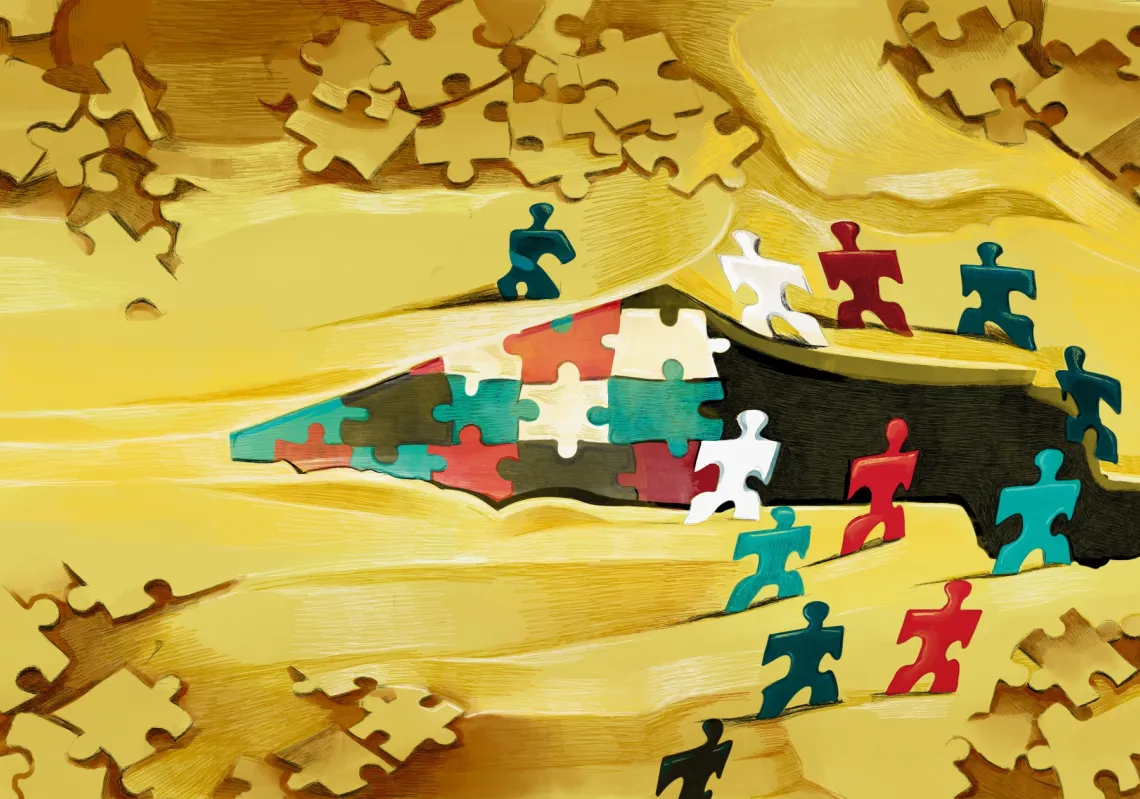Like millions of other Iranian women, retired teacher Somayyeh has been repressed by the country's hardline Islamic laws for decades but was too frightened to stand up to ruling clerics - until Mahsa Amini's death in morality police custody last month.
Women have been at the forefront of protests that erupted at Amini's funeral and spread across the country, posing one of the biggest challenges to the Islamic Republic since the 1979 revolution.
While analysts believe the chances for political change in Iran are slim, Amini's death has become an unprecedented rallying point for women, who are taking colossal risks to fight for freedom, calling for the downfall of ruling clerics in a society dominated by men.
"Her death broke the camel's back. This is the result of years of repression of Iranian women," said Somayyeh. "We are tired of discriminatory laws, of being seen as second-class citizens ... Now, we want political change."
"I cannot live with the fear that my daughter too can fall foul with the morality police and be killed by them ... Mahsa's death showed we have to fight against this establishment."
Compulsory dress code tops a long list of grievances of Iranian women, who make up more than half of the population and are among the most highly educated in the Middle East. They have a literacy rate of more than 80% and account for over 60% of Iran's university student body.
But under Iran's Islamic Sharia law, imposed after the revolution, men can divorce their spouses far more easily than women can, while custody of children over seven years of age automatically goes to the father.
Women, including lawmakers and senior officials, need permission from their husbands to travel abroad. Their testimony as a legal witness is worth half that of a man, and daughters inherit half of what sons do.
Women may legally hold most jobs, vote or drive, but they cannot run for president or become judges.
MOUNTING PRESSURE
Pressure on women has mounted since hardline President Ebrahim Raisi's victory in a tightly controlled race last year, which tilted the balance of power away from the moderating influence of liberal politicians.
Raisi's enforcement of the "hijab and chastity law" in July has resulted in more restrictions, such as women being banned from entering some banks, government offices and some forms of public transportation.
The number of morality police vans has surged in the streets, and videos on social media depict officers beating and pushing women while detaining them.
That has angered many Iranians, who believe they deserve to live in a free country and have the rights enjoyed by others around the world.
"This is not about dress code anymore. This is about the Iranian nation's rights. It is about a nation that has been taken hostage by the clergy for decades," said Nasrin, 38, from the central city of Yazd.
"I want to live as I wish. We fight for a better Iran without clerics running my country."
'TO LIVE FREELY'
Security forces have fiercely confronted the protesters, killing more than 185 of them including at least 19 minors, wounding hundreds and arresting thousands, according to rights groups.
Iranian authorities say at least 20 members of security forces have been killed during the "riots".
"I grew up in Iran dreaming about living in a free country, where I can sing freely, dance freely, have a boyfriend and hold his hand in the street without fearing the morality police," said Jinous, 27, a freelance translator.
"I am not afraid at all. We go to protests with my mother and sisters to say 'enough is enough'."
Accusing foreign adversaries of being behind the unrest, clerical rulers argue that women are better protected in Iran than in the West, where women are used as tools to advertise products and satisfy "disorderly and unlawful sexual needs".
"The compulsory hijab is the weakest pillar of the Islamic Republic. That is why the regime is really scared of this revolution," said Masih Alinejad, an Iranian-American rights activist based in New York.
Waves of the hijab protests have hit the clerical establishment in the past years. In 2014, Alinejad started a Facebook campaign "My Stealthy Freedom", where she shared pictures of unveiled Iranian women sent to her.
It was followed by a campaign in 2017 for women to wear white headscarves on Wednesdays and the hijab protests in 2018, when women took to the streets holding their veils aloft. Dozens have been jailed for their activism against forced veiling, according to rights groups.












